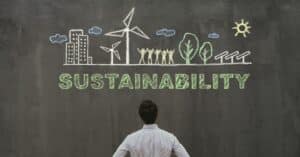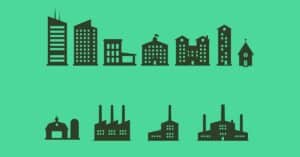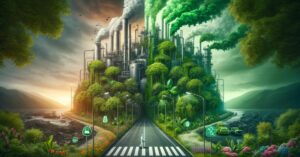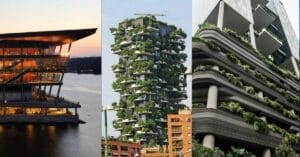Transforming your business to meet sustainability objectives might seem like a daunting challenge.
But – whether you’re starting from zero or nearly a net zero hero – there’s plenty of help at hand with these 5 books about how to make your business sustainable.
Key Points:
- The main goals of a business’s sustainability strategy is to reduce the waste and emissions that are widely acknowledged to be a major cause of climate change.
- We are seeing the effects of the harm on our environment every day, from the pollution of our air, land, rivers and seas to the catastrophic natural disasters experienced not just in far-flung places, but now also on our own doorstep.
- We still seem a far cry from achieving net zero across all businesses and from preventing a 2ºC rise in temperature. But with a concerted effort, all businesses can make the changes needed to slow down the harm and start making a more positive impact on our environment.
Guides to sustainability
Making a business more sustainable shouldn’t involve reinventing the wheel.
Although the warnings are becoming increasingly serious now that climate change is here at our door, it is something we have been aware of for decades.
As a result, there is a wealth of books on sustainability, including those geared to guiding businesses to start becoming more sustainable.
#1. Strategy for sustainability: a business manifesto, by Adam Werbach
This book may have been published in 2009, but it is still regarded as “the definitive work on business strategy on sustainability”.
Ultimately, it’s a business’s how-to guide when it comes to doing well by doing good.
Werbach’s main thread throughout the book is that modern businesses need to be sustainable to survive – corporate policies acting in the best interests of the environment isn’t simply a box-ticking exercise or a “nice to have”.
He gives real-life examples of how strategy without sustainability is not just irresponsible, but also bad for business.
More importantly, this book gives a guide on how to become sustainable – and reap the rewards.
#2. Doughnut Economics: Seven Ways to Think Like a 21st Century Economist, by Kate Raworth
Touted as “the book that redefines economics for a world in crisis”, this book identifies the issues that have led to our modern economic breakdown.
But it doesn’t just offer a criticism of mainstream economics. Raworth also offers a way out of the more, with a refreshing look at how we can
Her alternative roadmap for meeting business needs and the needs of the planet moves away from an economic model obsessed with growth.
While the idea of avoiding growth in favour of the environment might cause the hairs on the necks of CEOs everywhere to stand on end, Raworth’s book has been celebrated as “a compelling and timely intervention”, named a Sunday Times Bestseller and Financial Times and Forbes Book of the Year.
#3. Sustainable Excellence: The Future of Business in a Fast-Changing World, by Aron Cramer and Zachary Karabell
This book offers practical advice on building successful business strategies while paying heed to the climate crisis.
It addresses the pressures on resources, rising costs, technology and changing consumer expectations.
But it also highlights how transformation of businesses to respond to the challenges of climate change offer many opportunities, giving examples of how big corporations such as Coca-Cola and Nike have adapted to change and benefited from putting sustainability at the centre of business strategy.
#4. Cradle to Cradle: Remaking the Way We Make Things, by William McDonough and Michael Braungart
How can we make the best use of resources? How can waste from one system feed another?
These questions and more are explored by McDonough and Braungart as they challenge the status quo and assign value to waste.
Although not directly a guide for businesses other than manufacturers, this book encourages all businesses to re-examine how they can best exploit resources without causing unnecessary harm – and even benefit from it.
Efficiency is one of the best drivers of profit. Embracing a circular model of waste means a business can streamline resources, therefore cutting down on cost.
#5. Natural capitalism: Creating the Next Industrial Revolution, by Paul Hawken, Amory Lovins and Hunter Lovins
The global economy has long been dependent on natural resources.
But this needs to change if we are to prevent global temperatures rising enough to harm the environment beyond repair.
Natural capitalism is a critique of our existing system, arguing that a sustainable economy is an essential route to survival.
Resource productivity, say its authors, is vital, as is improving the quality and flow of services, rather than the flow of money.







